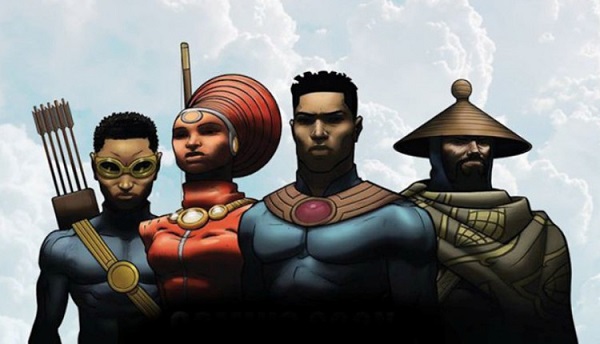
An interesting post on Afropunk.com, about a new South African superhero series, Kwezi:
Created by acclaimed artist Loyiso Mkize, the series is centered on 19 year old Kwezi, a typical South African youngster – immersed in popular youth culture – who develops a connection with his traditional roots,. Mkize says, “It is the journey of a young man. He starts off as an arrogant, opinionated anti-hero who discovers and appreciates his superpowers … the cultural aspect brings him back to his roots.”
Quite a difference from the late seventies Apartheid era Mighty Man, which as Nick Wood describes it, was basically propaganda for the Apartheid state, aimed at the inhabitants of the townships:
But Mighty Man (MM) never challenged any agencies or laws outside the township in which they were set – ostensibly Soweto. A black hero seemingly meant exclusively for black people, his enemies were township gangsters (‘tsotis’), drug Lords (‘dagga merchants’) and generally opponents of peace and ‘law and order’. As Bill Mantlo (1978) states, Mighty Man propounded subservience to laws, non-violence and an anti-gun message (for blacks). With readership targeted to the townships and perhaps priced to ensure affordability to a relatively impoverished community, it was evident Mighty Man was implicitly intent on ensuring compliance to laws – with the underlying message that opponents of ‘law and order’ were invariably gangsters, murderers and, in some instances, ‘communists’. (As Mantlo asserts, a thinly veiled allusion to the then banned African National Congress.)